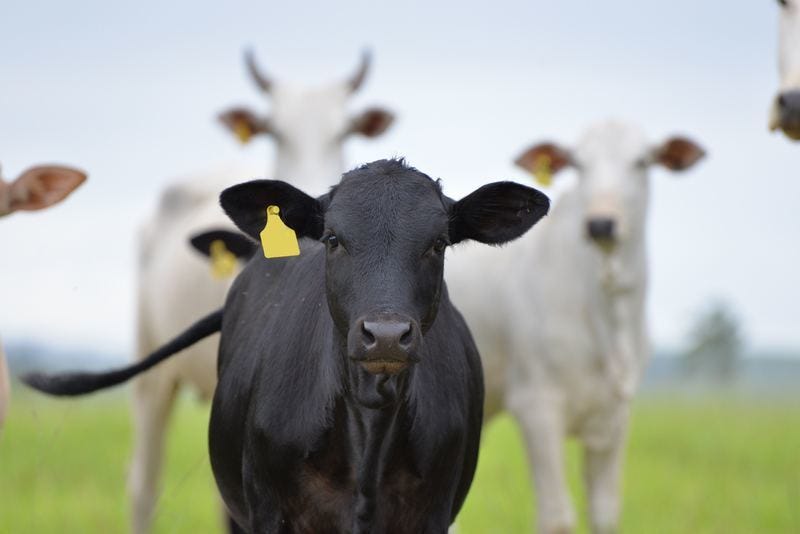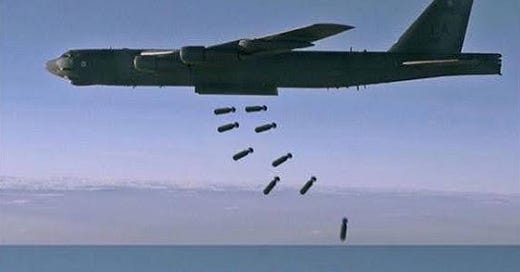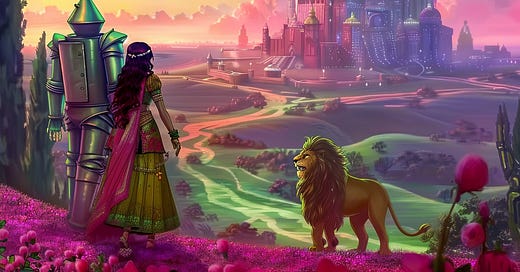
2018 Newsletter 9: Ending Factory Farming

Note: Super long essay follows but I would absolutely love your comments and/or criticism
In a previous essay, I introduced factory farming as the great moral crisis of our current era. In that essay, I juxtaposed factory farming with climate change (the two are related, with factory farming being one of the greatest contributors to greenhouse gas emissions). In this essay, I am going to dig deeper into the relationship between moral and material conditions. Does a specific form of energy use come with a moral calculus? Does it come with a metaphysics? I believe so, and my beliefs are stated right at the beginning and repeated once again towards the end of this article:
We live in the most anthropocentric era ever.
Fossil fuels power the engine that produces an anthropocentric world - human rights and oil exploration are two sides of the same coin. Factory farming is the most egregious manifestation of this anthropocentrism.
The transition from fossil fuels to alternative (renewable) energy sources should go hand in hand with the end of factory farming and the flourishing of all beings.
Now for the main story....
Our moral condition is intimately tied to social and technological conditions. There was a time — perhaps in prehistory, perhaps as recently as three hundred years ago — when we could afford to neglect the nonhuman world entirely — the human impact on the rest of the earth was small enough that we can treat it as a rounding error. It was possible to define the human as a stand-alone species, a disinterested witness admiring the spectacle of nature.
That condition has changed. Today, to be human is to be more than human. Now that human freedom is accepted the world over as a desirable outcome, it’s time we set our sights on other freedoms, freedoms that aren’t human freedoms even if they will eventually help us flourish as well. One freedom in particular: the end of factory farming, which, I will argue is deeply connected to another freedom: the end of fossil fuels.
I use the term “FFreedom” to denote these two moral demands, demands that expand our traditional conception of human freedom into the nonhuman world. We often hear that the underlying problem is greed, especially organized capitalist greed. Greed is surely destructive, but in this article and in subsequent articles, I want to argue that it’s not just the negative side of humanity that’s the problem. It’s the positive side too.
The problem lies in our self-understanding of humanity itself and what it means to have a good (human) life. What it means to be free.Our fossil-fueled, factory-farmed world is like a giant sacrifice at the altar of humanity. While our violence on the nonhuman may not matter, it should, for it destabilizes our uber-humanity. On the flip side, a factory farm free and fossil free world will contribute to human as well as nonhuman flourishing. That’s why there are two F’s in FFreedom: fossil free; factory farm free.
From Marx onward, we know that the reign of capital is doubly unstable:
Economic booms and busts are inevitable
Wars, especially total wars, are inevitable
The anthropocene intensifies those two instabilities and adds a third:
Total collapse is inevitable
Here's the main premise of planetarity: The anthropocene and its instabilities won't go away until we replace discussions of the "human condition," i.e., the circumstances in which only human beings exist and flourish with the "organic condition," i.e., the circumstances under which all beings on this planet exist and flourish. Further, it's clear that the nonhuman is beating down the social doors anyway - whether it's ocean surges that flood cities, designer microbiomes or the streams of data that connect our insides and outsides together, our fate as a species is now directly connected to the wellbeing of the earth. Politics has never been more important than it's today.
Industrial Life
Let’s start with the foundational transformation of the modern era: the industrial revolution. Was it a good thing or a bad thing?
Before we answer that question, we have to ask: good for whom? We can argue for eternity about whether the industrial revolution was good for people or not. Those who are for the revolution will talk about the ease of our modern lives, the advances in health and education and the vast plethora of gizmos that make our lives safer, faster and more interesting..
Those who are against the revolution will talk about the sweatshops and wage slavery that’s been the backbone of industrial manufacturing, the destruction of lives and livelihoods that came in the way of progress and the general alienation that characterizes modern life.
After all, I am writing this essay on a computer, and that wouldn’t have happened without the discoveries in basic science and technology that made mass manufacturing the standard form of production after the industrial revolution.
And so it goes.
What’s without a doubt is that the industrial revolution was an unmitigated disaster for all the other creatures that share the earth with us. If they’re wild creatures, they have seen their habitats shrink to nothing, putting them over the brink of extinction in many cases and living close to it in many others.
If they are domesticated - what a word! - their fate is often much worse: forced to live in unspeakable conditions in factory farms until they are killed in equally hellish circumstances. Or experimented upon in labs in the name of science.
The only creatures that have had anything close to an upside are pets but even there, it’s only the animals lucky enough to be chosen as our companions that (arguably) live a good life. Their unlucky siblings suffer the same fate as the rejects from factory farms.
All of this in the name of human welfare: as they say, a chicken in every pot and a car in every garage. I say “in the name of human welfare” very carefully, for who could be against human welfare?
When we talk about the impending disasters of climate and ecological collapse, we talk about human greed: of oil companies maximizing profits, of capitalists privileging robots over humans, of governments that invade in the name of democracy. Some of us also talk about animal rights and animal welfare, of extending privileges to nonhumans that currently only protect humans.
There’s nothing wrong in any of those claims. Of course we have to protest energy companies looking for new oil fields. Of course we have extend rights to other species. No doubt about it. Note, however, that those who protest energy companies rarely protest cruelty to animals. And the other way around. It could be that everyone has limited time and energy and can only be effective in a narrow domain.
True enough, but what if the fossil fuels and factory farms are symptoms of the same disease? Wouldn’t we want to address the root cause? Put another way, where does the problem stem from? Is it the greed of oil companies? Of chicken farmers? Or is it something else? There's a long queue for people who think oil companies are evil. A shorter queue for people who think chicken farmers are evil. But the general assumption is that the goodness in humanity makes up for these lapses. That the world would be perfect if all of us embraced true human values.
Perhaps.
But here’s an alternate hypothesis: that the disasters we are fearing (or ignoring) flow out of our goodness as much as our badness, that our human values are a problem precisely because they’re human -
That replacing oil refineries with wind farms will only kick the real problems down the road.
That capitalism itself is a sign of anthroprocentrism run amuck, even as we congratulate ourselves on not believing in angels and demons.
What if the problem isn’t humans being bad but humans being human?
Philosophers are usually reluctant to derive OUGHT from IS, but an analogy to a previous era of oppression might clarify how the moral is deeply related to the material.
Ending Slavery
There were no shortage of moral causes in the mid nineteenth century - colonialism was expanding into India and other parts of Asia and Africa, the treatment of laborers in the mills of Manchester and elsewhere was horrible and the Victorian era greatly expanded the reach of patriarchy.
Then there’s slavery, which stands out as the worst evil in this crowded field of misery; ending it was the great moral cause of the nineteenth century. While racial oppression continues to this day, we can say with some certainty that the world is better today than it was a hundred and fifty years ago.
While we see it primarily as a moral cause - as it surely was - it’s impossible to disentangle slavery from other shifts in the material economy. For example, while the importation of slaves to the United States ended in 1808, the black population of the United States increased from about 700,000 in 1790 to about 4 million in 1860. In other words, the enslaved population exploded in an era which increasingly accepted its moral repugnance.
Isn’t that a contradiction?
Yes it is, if understood only in moral terms. However, consider this material fact: Eli Whitney introduced the cotton gin in 1793, and the production of cotton went from 1.5 million pounds in 1790 to over 2000 million pounds in 1860. There’s a direct correlation between the increase of the slave population and the increase of cotton production, even as the “efficiency” of production (as measured by cotton/slave) increased throughout this period.
In other words, we can’t understand the extent and duration of slavery without bringing in shifts in technology and modes of production. While we can assessslavery purely as a moral calamity, we can’t understand the resistance to the ending of slavery or its ultimate demise (which required the bloodiest war in US history) without reference to material conditions.
To use a physicists turn of phrase, moral statics can be pure, but moral dynamics, i.e., changes in the conditions of justice, are deeply intertwined with material conditions. I might go on a limb and say Marxian theory gives us many of the conceptual tools that help us understand moral dynamics within the human sphere (i.e., race, gender, labor etc).
Back to FFreedom
Like slavery in the nineteenth century, our awareness of animal sentience and personhood has increased in the last fifty years (say, after the publication of Peter Singer’s “Animal Liberation” in 1975) but so has factory farming: several fold increase in large mammal production (e.g., cattle and hogs) and orders of magnitude increase in poultry and fish, so much so that factory farming rival transportation for its impact on greenhouse gas production. How do we incorporate the energy economy into our understanding of factory farming?
Energy use isn’t the only factor; we can’t understand factory farming as its currently practiced without bringing in biotechnology and yield maximization in animals bred for dairy or slaughter. While these factors are well understood individually, together they reveal a mode of planetary production that’s qualitatively and quantitatively different from the industrial mode that spawned Marxian theory and its competitors. Despite attempts by theorists such as Timothy Morton to expand Marxian theory to the planet as a whole, I believe the attempt is bound to fail - there’s no simple replacement of class by species. Planetary production is driven by networks of energy and information, not the clanging of steam engines. As machines change, so do mechanisms of explanation.
Of course, one can challenge animal welfare laws or fight for the rights of dolphins without worrying about theoretical frameworks, just as one can fight for better pay and safer working conditions without buying into an account of the laboring class versus the capitalists. Surely that work needs to continue. Nevertheless, I believe a new theory is important for at least two reasons:
Theoretical reflection makes explicit the tacit conditions of our times and that in turn helps design new institutions that can respond to those conditions. You couldn’t transition from the divine right of kings to liberal democracy without philosophers imagining that new condition.
It’s easier to align actors interested in animal rights, climate change, food sovereignty and globalization if we can draw explicit links between the energetic and informational basis of these seemingly disparate movements, which, in turn, is necessary for a truly transformative politics.
Terrestrial Ignorance
The crisis of society isn't an isolated crisis - it's just one of the many ways in which we are struggling with our terrestrial existence - in short, we have an excellent grasp of cosmology and a terrible grasp of being earthbound. Copernicus onward, we no longer consider humans to be the center of the cosmos, but if anything, we consider ourselves even more central on earth. So to end at the beginning:
We live in the most anthropocentric era ever.
Fossil fuels power the engine that produces an anthropocentric world - human rights and oil exploration are two sides of the same coin. Factory farming is the most egregious manifestation of this anthropocentrism.
The transition from fossil fuels to alternative (renewable) energy sources should go hand in hand with the end of factory farming and the flourishing of all beings.
Let me finish with a few words about the first of these three claims. In this case, I believe the diagnosis is pretty straightforward - while Copernicus and Galileo helped us liberate the heavens from God, their lineage has done nothing to liberate the earth from man. In fact, that lineage has made conditions on earth much worse for most beings. While we have bought into the myths of progress and enlightenment and how we don't believe that angels dance on the head of a pin or that the sun rotates around the earth, we actually live in the most anthropocentric era ever.
Consider the dominant activity of the modern era - business. Trees and foxes can't do business with you. They don't own property, they can't start companies and they can't bribe politicians. A lion can't purchase antelope meat and an antelope can't purchase lion insurance. Of course, it's not just business that excludes the nonhuman; so do all of our political institutions. Lions can't lobby for antelope quotas and antelopes can't vote their own lion-free party into power. Useless as labor, cute as companions but not productive in any real sense, the only thing that an animal can do is surrender its flesh for food or donate its body to science. I am using the terms "surrender" and "donate" as euphemisms of course. The engines of society are all anthropocentric. All our efforts to extend rights to the nonhuman world founder on this basic fact of political economy.
The anthropocene is nothing but the culmination of imperial-capitalist expansion except that we miss its primary victim. Yes, it's true that entire human cultures have been destroyed in its wake, but the one constant in the march of imperial-capital has been its success in converting every nonhuman into an object that serves a function outside its own world: food, fur, furniture, you name it. Therefore, the violence at the heart of capital shouldn't be read primarily as class-conflict but as ecocide.
Of course, it's not capital alone whose violence needs to be read that way - remember the four pests campaign that headlined Mao's "Great Leap Forward" that turned out to be one of the main contributors to a catastrophic famine. In other words, it's not only capitalism that's at fault but the logic of the modern world as it pertains to terrestrial existence.
Endnote: As you can see, I am mixing terms and concepts such as class and capital that lie within the social and other terms and concepts such as ecocide and nonhuman that lie within the realms of the natural. We will have to develop new concepts that don't balk at these disciplinary crossovers.







